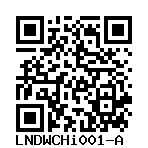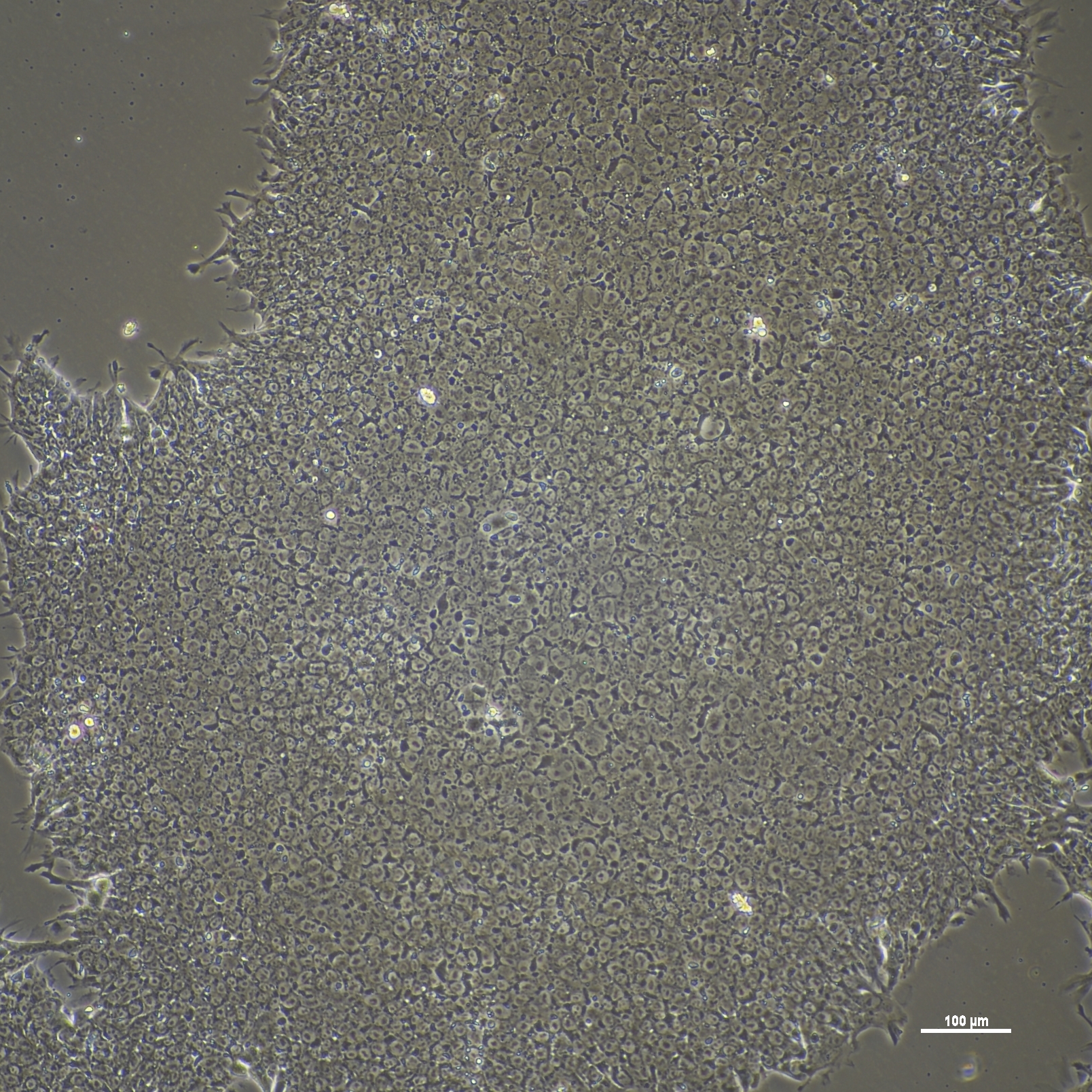LNDWCH-iPS-PD-PLA2G6–001
LNDWCHi001-A
General
Cell Line |
|
| hPSCreg name | LNDWCHi001-A |
| Cite as: | LNDWCHi001-A (RRID:CVCL_D0HN) |
| Alternative name(s) |
LNDWCH-iPS-PD-PLA2G6–001
|
| Cell line type | Human induced pluripotent stem cell (hiPSC) |
| Similar lines |
EDi001-A-2 (AST23-1KO-3, AST22-1KO-3, AST-23_SCAKO Clone 3, AST-22_SNCAKO Clone 3) Donor's gene variants: SNCA, SNCA, SNCA, SNCA Donor diseases: Parkinson disease EDi001-A-3 (AST23_SNCAKO Clone 1, AST22-1KO-1, AST23-1KO-1, AST22_SNCAKO Clone 1) Donor's gene variants: SNCA, SNCA, SNCA, SNCA Donor diseases: Parkinson disease EDi001-A-4 (AST22-2KO-6, AST23_SNCAKO Clone 6, AST22_SNCAKO Clone 6, AST23-2KO-6) Donor's gene variants: SNCA, SNCA, SNCA, SNCA Donor diseases: Parkinson disease CBIGi007-A-1 (IPSC0009, TMEM175 Q65Q homozygous correction) Donor's gene variants: TMEM175, TMEM175 Donor diseases: Parkinson Disease CBIGi007-A-2 (IPSC0010, TMEM175 P65P homozygous disease) Donor's gene variants: TMEM175, TMEM175 Donor diseases: Parkinson Disease CBIGi009-A-1 (IPSC0013, TMEM175 M393T homozygous correction) Donor's gene variants: TMEM175, TMEM175 Donor diseases: Parkinson Disease CBIGi013-A-1 (LRRK2 M1646T correction, IPSC0018) Donor's gene variants: LRRK2, LRRK2 Donor diseases: Parkinson Disease CBIGi027-A-1 (IPSC0039, LRRK2 G2385R (CBIGi027) correction) Donor's gene variants: LRRK2, LRRK2 Donor diseases: Parkinson Disease STBCi004-B-1 (SFC832-03-06 LRRK2WT/WT C47) Donor's gene variants: LRRK2 Donor diseases: Parkinson disease CBIGi005-A (IPSC0003, LRRK2 G2019S) Donor's gene variants: LRRK2, LRRK2 Donor diseases: Parkinson Disease CBIGi007-A (IPSC0008, TMEM175 Q65P heterozygous) Donor's gene variants: TMEM175, TMEM175 Donor diseases: Parkinson Disease CBIGi009-A (IPSC0012, TMEM175 M393T homozygous) Donor's gene variants: TMEM175, TMEM175 Donor diseases: Parkinson Disease CBIGi013-A (IPSC0017, LRRK2 M1646T (heterozygous)) Donor's gene variants: LRRK2, LRRK2 Donor diseases: Parkinson Disease CBIGi015-A (IPSC0020, LRRK2 N551K-R1398H-K1423K (protective haplotype)) Donor's gene variants: LRRK2, LRRK2 Donor diseases: Parkinson Disease CBIGi016-A (IPSC0021, Parkin homozygous deletion between exon 3 and 4) Donor's gene variants: PRKN, PRKN Donor diseases: Parkinson Disease CBIGi009-B (TMEM175 M393T homozygous (CBIGi009), IPSC0033) Donor's gene variants: TMEM175, TMEM175 Donor diseases: Parkinson Disease CBIGi027-A (LRRK2 G2385R (CBIGi027), IPSC0037) Donor's gene variants: LRRK2, LRRK2 Donor diseases: Parkinson Disease CBIGi039-A-1 (IPSC0051, LRRK2 R1441H(CBIGi039-A) correction) Donor's gene variants: LRRK2, LRRK2 Donor diseases: Parkinson Disease CBIGi041-A-1 (IPSC0054, GBA L444P (CBIGi041-A) correction) Donor's gene variants: GBA, GBA Donor diseases: Parkinson Disease CBIGi042-A-1 (GBA E326K (CBIGi042-A) correction, IPSC0056) Donor's gene variants: GBA, GBA Donor diseases: Parkinson Disease CBIGi044-A-1 (IPSC0059, LRRK2 N551K (CBIGi044-A) correction) Donor's gene variants: LRRK2, LRRK2 Donor diseases: Parkinson Disease CBIGi044-A-2 (IPSC0060, LRRK2 R1398H (CBIGi044-A) correction) Donor's gene variants: LRRK2, LRRK2 Donor diseases: Parkinson Disease |
| Last update | 9th October 2023 |
| User feedback | |
Provider |
|
| Generator | Laboratory of Neurodegenerative Disorders (LNDWCH) |
External Databases |
|
| BioSamples | SAMEA114009739 |
| Cellosaurus | CVCL_D0HN |
| Wikidata | Q123032972 |
General Information |
|
| Publications |
|
| * Is the cell line readily obtainable for third parties? |
No |
Donor Information
General Donor Information |
|
| Sex | female |
| Ethnicity | Han Chinese |
Phenotype and Disease related information (Donor) |
|
| Diseases | A disease was diagnosed.
|
External Databases (Donor) |
|
| BioSamples | SAMEA114009740 |
Ethics
| Has informed consent been obtained from the donor of the embryo/tissue from which the pluripotent stem cells have been derived? | Yes |
| Was the consent voluntarily given? | Yes |
| Has the donor been informed that participation will not directly influence their personal treatment? | Yes |
| Can you provide us with a copy of the Donor Information Sheet provided to the donor? | Yes |
| Do you (Depositor/Provider) hold the original Donor Consent Form? | Yes |
| Please indicate whether the data associated with the donated material has been pseudonymised or anonymised. | anonymised |
| Does consent explicitly allow the derivation of pluripotent stem cells? | Yes |
| Does consent prevent CELLS DERIVED FROM THE DONATED BIOSAMPLE from being made available to researchers anywhere in the world? | Yes |
| How may genetic information associated with the cell line be accessed? | No information |
| Will the donor expect to receive financial benefit, beyond reasonable expenses, in return for donating the biosample? | No |
| Has a favourable opinion been obtained from a research ethics committee, or other ethics review panel, in relation to the Research Protocol including the consent provisions? | Yes |
| Name of accrediting authority involved? | Ethics Committee of West China Hospital, Sichuan University |
| Approval number | 2023-701 |
| For generation of the cell line, who was the supplier of any recombined DNA vectors or commercial kits used? |
hIPSC Derivation
General |
|
| Source cell type |
A sample of peripheral blood mononuclear cells.
Synonyms
|
Reprogramming method |
|
| Vector type | Integrating |
| Vector | Virus () |
| Is the used vector excisable? |
Unknown |
| Absence of reprogramming vector(s)? |
Unknown |
| Reprogramming vectors silenced? | |
Vector free reprogramming |
|
Other |
|
| Derived under xeno-free conditions |
Unknown |
| Derived under GMP? |
Unknown |
| Available as clinical grade? |
Unknown |
Culture Conditions
| Medium |
mTeSR™ Plus
|
Characterisation
Analysis of Undifferentiated Cells
| Marker | Present | Absent |
| mCpG | ||
| OCT4 | X |
Report
Differentiation Potency
In vitro spontaneous differentiation
In vitro spontaneous differentiation
In vitro spontaneous differentiation
Genotyping
Karyotyping (Cell Line) |
|
| Has the cell line karyotype been analysed? |
Yes
46, XX
|
Other Genotyping (Cell Line) |
|



Login to share your feedback, experiences or results with the research community.